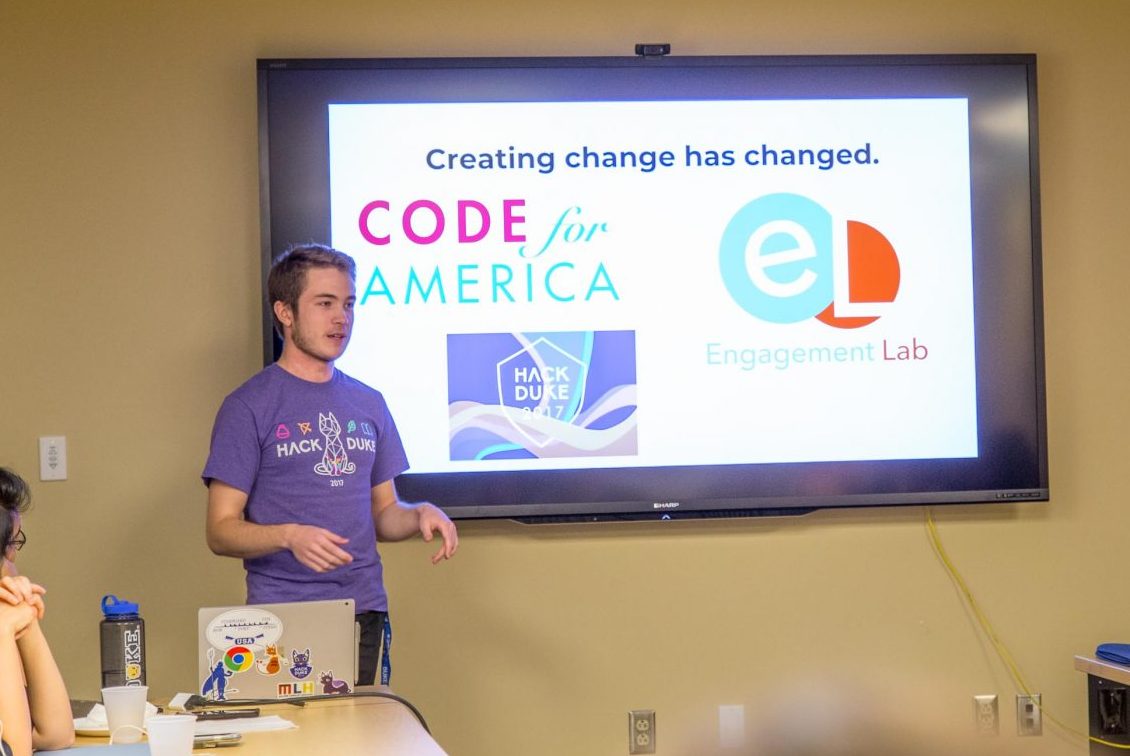Our Mission, Part 4: Exploring leading edge projects, partnering with faculty to gather data from Duke’s learning platforms and publishing research, and seeking grants and sponsored research opportunities to build and pilot new technologies.
Developing tech to fight the “forgetting curve”
After seeing a void in the edtech market for simple services that combat the Ebbinghaus Forgetting Curve, we began development of Nudge. Nudge is a technology designed to text or email students a single question at regular intervals after a lecture. We first started testing Nudge in Spring 2018, and we are currently seeking beta users for Fall 2018.
Interdisciplinary innovation for open pedagogy
Learning Innovation engaged Duke students in the process of creating edtech solutions through it’s participation a 2017-2018 interdisciplinary Bass Connections project. The project, Open Source Pedagogy, Research, + Innovation Lab (OSPRI), sought to identify how open source principles and methodologies can address the gap between how learning occurs outside and inside academic settings.
Learning Innovation’s Michael Green joined faculty members Aria Chernik, Lecturing Fellow in the Social Science Research Institute, and Robert C. Duvall, Lecturer in Computer Science, to teach students about modern pedagogies and how technology helps facilitate them. Students conducted design thinking and product development exercises around an education technology idea of their choosing and pitched their ideas at an end-of-year presentation.
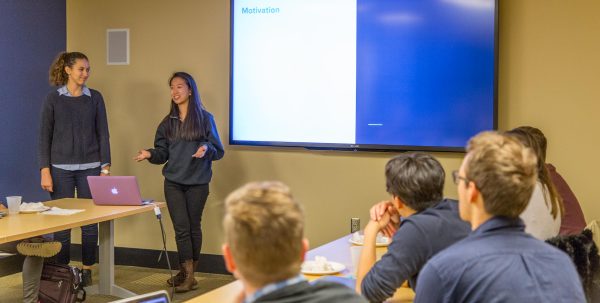
Design thinking and edtech for doctoral students
The Doctoral Academy is a new initiative for Duke Ph.D. students, offering summer short courses that provide an intensive introduction to important topics not typically included in a doctoral curriculum. Learning Innovation’s Matthew Rascoff and Aria Chernik taught a five-day Doctoral Academy course titled “Ed Tech.” Rascoff and Chernik modified a five-day design sprint and added constructive critical foundations to address both the practical applications and theoretical implications of ed tech. The workshop emphasized collaboration, divergent and convergent thinking, iteration and communication across audiences and media.
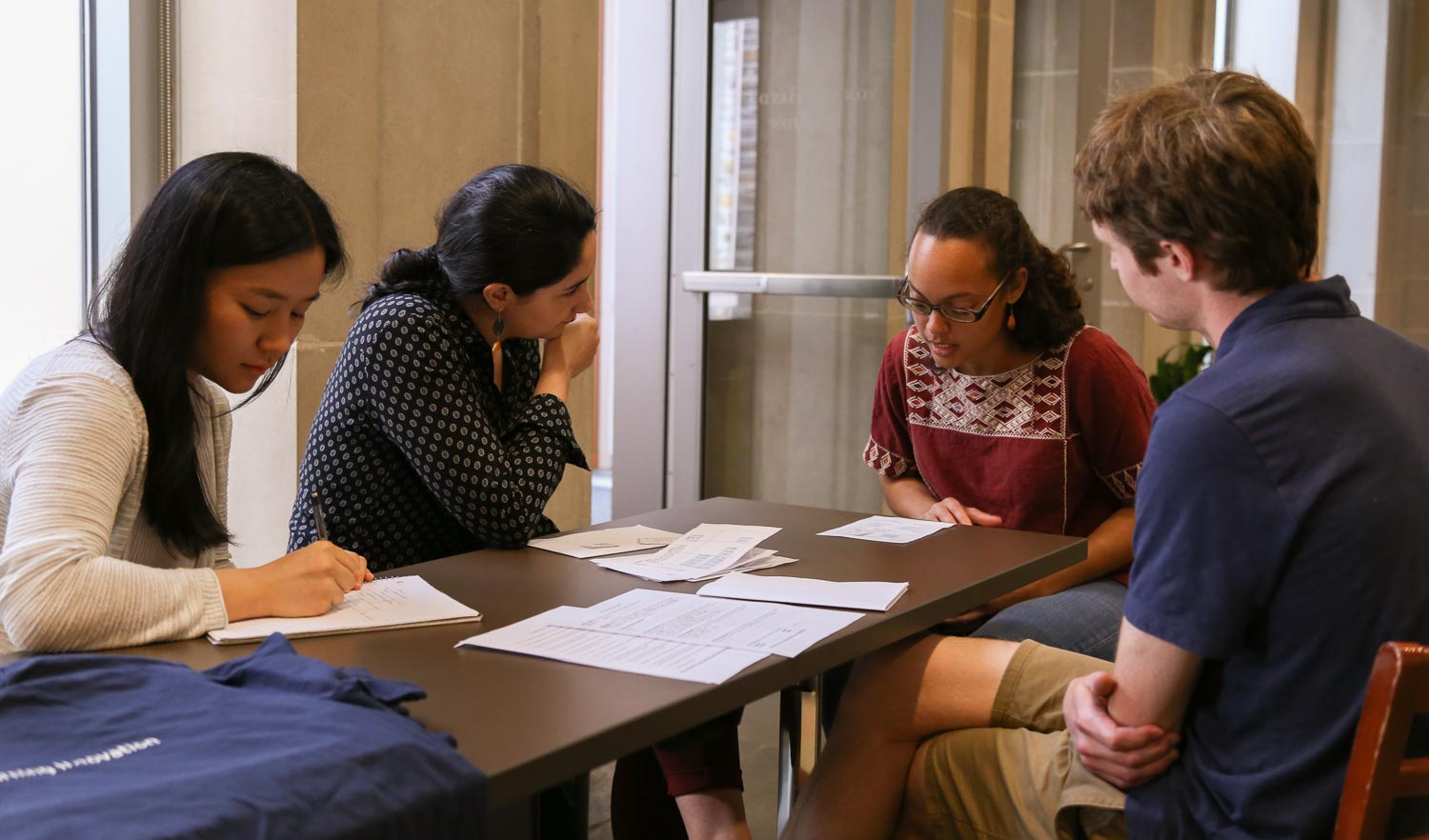
On day five, the two teams “pitched” their products and received feedback from a panel of expert leaders, including Tracy Futhey, chief information officer at Duke; Mark Samberg, technology innovations manager at the NC State Friday Institute; Maria LaMonaca Wisdom, director of graduate student advising and engagement for the humanities at Duke; and Lucy Kosturko, curriculum specialist and research scientist at SAS.
This class was such a breath of fresh air in terms of the opportunities for collaboration, technical skills, and fun. The breadth of students’ disciplinary backgrounds created an exciting interdisciplinary workspace…
-Ed Tech Doctoral Academy student
Exploring emerging technologies in teaching and learning
Through the Duke Digital Initiative (DDI), a collaboration between Learning Innovation and the Office of Information Technology, we supported multiple efforts exploring new and emerging technologies and how they might be applied to teaching and learning at Duke.
During 2017-2018 academic year, DDI gave away more than 500 SparkFun Inventor’s Kits for Photon internet of things (IoT) kits to students on campus. The giveaway sought to encourage open exploration of IoT technologies and maker approaches to problem solving.
DDI also provided IoT microcontroller kits to instructors and students who wanted to use the kits in a course and installed some common IoT consumer devices in the Technology Engagement Center for exploration by the Duke community.
On April 3, DDI hosted an IoT Showcase where students could demonstrate their IoT creations. A panel of judges reviewed the projects and prizes were awarded to the top concept in a number of categories.
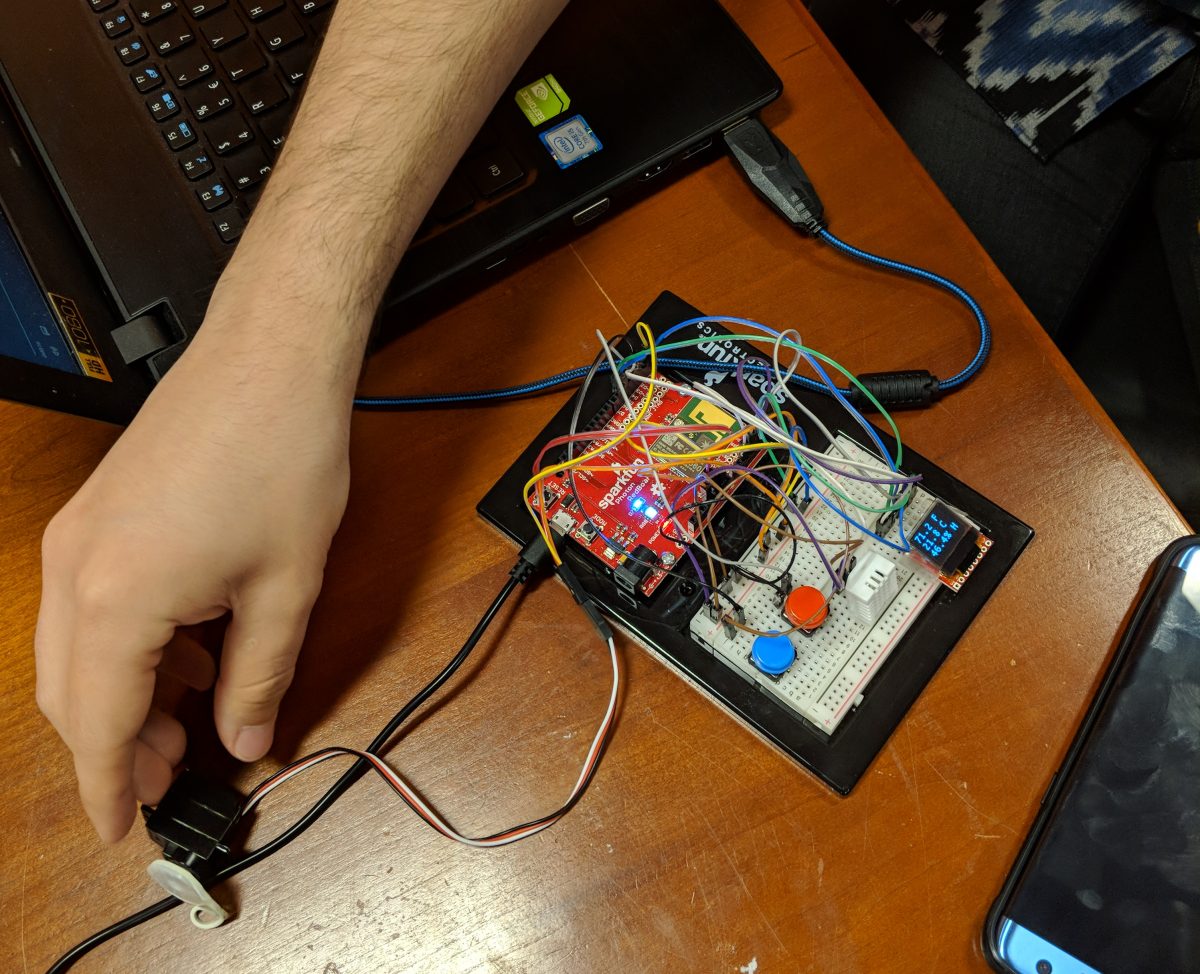
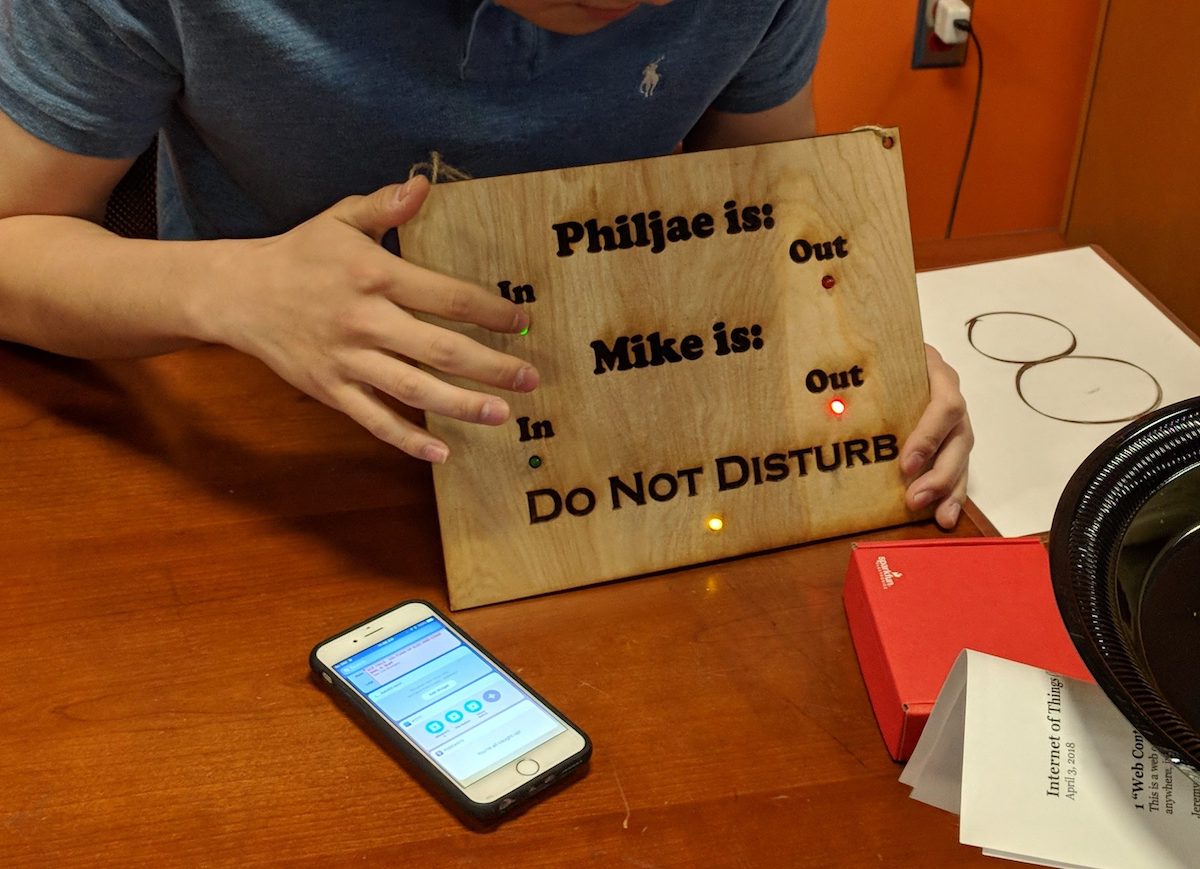
This year DDI supported additional projects including:
- a Center for Mobile Development to be staffed by students as a hub of information and assistance for students, faculty and staff looking for help in developing mobile apps at Duke;
- piloting an augmented reality app for objects in the Nasher Museum of Art’s collection;
- supporting two faculty to attend the Games4Good serious games conference, who then used that knowledge to teach a course involving games and advise a group of students creating a game to teach incoming students about gender violence;
- exploring use of augmented reality to teach Duke medical residents how to communicate with health care teams;
- creating a crowd-sourced 3D scan of the Duke Chapel;
- exploring the use of the Alexa Dot to implement voice control in a classroom/conference room environment.

